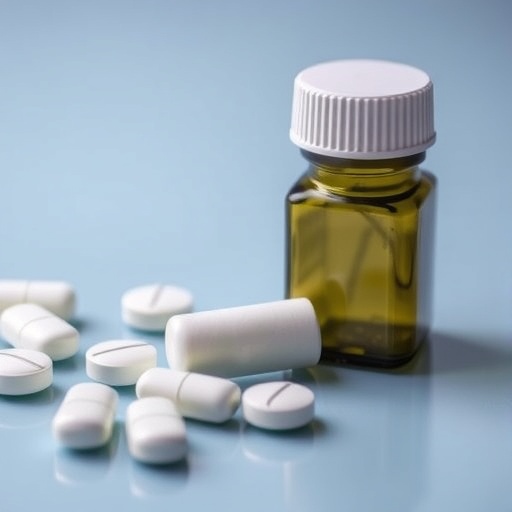In a groundbreaking advancement in the treatment of early syphilis, researchers funded by the National Institutes of Health (NIH) have demonstrated that a single dose of the antibiotic benzathine penicillin G (BPG) is as effective as the traditional three-dose regimen widely prescribed across clinical settings. This pivotal finding, emerging from a rigorously controlled late-stage clinical trial, offers a compelling opportunity to simplify syphilis treatment protocols and potentially improve patient adherence to therapy during a period marked by escalating syphilis incidence globally.
Syphilis, caused by the spirochete bacterium Treponema pallidum, remains a formidable public health challenge. The infection’s stages—primary, secondary, and early latent—are collectively defined as early syphilis and represent a critical window for curative intervention to prevent the severe systemic complications associated with untreated disease. In 2023 alone, the United States recorded an alarming 209,253 syphilis cases and 3,882 congenital syphilis cases, marking significant increases relative to 2019 and signifying an urgent need to optimize both diagnosis and treatment strategies.
The conventional treatment regimen endorsed by health authorities entails administering three intramuscular injections of BPG, each 2.4 million units, spaced one week apart. While effective, this extended treatment course poses practical challenges. Patients frequently encounter barriers such as scheduling difficulties, transportation issues, stigma, and forgetfulness, which contribute to incomplete adherence. Missed or delayed doses can compromise therapeutic success, potentially perpetuating syphilis transmission and progression. Addressing these hurdles through simplification of treatment offers a clear public health benefit.
Enrolling 249 participants diagnosed with early syphilis, the NIH-supported trial was executed across ten clinical sites in the United States. Key demographic features included a predominance of men (97%) and a substantial proportion living with HIV (61%), a co-infection state known to complicate syphilis management and outcomes. Participants were randomly allocated to receive either one intramuscular injection of BPG at 2.4 million units or the standard three-dose series at weekly intervals, ensuring rigorous comparative assessment under controlled and monitored conditions.
The primary endpoint was a serologic response measured by a significant decline in syphilis antibody titers at six months post-treatment, an established biomarker indicative of therapeutic success. Strikingly, 76% of participants in the single-dose cohort achieved this serologic response, compared to 70% in the standard three-dose group. Statistical analysis confirmed that this difference was not significant, including subgroup analyses accounting for HIV status, thereby affirming the non-inferiority of the abbreviated regimen. This equivalence is especially notable given the longstanding clinical reliance on multi-dose protocols.
Safety data further reinforced the trial’s findings. There were no serious adverse events attributable to BPG administration, and only one case of neurosyphilis emerged shortly after initiating treatment, which was excluded from efficacy analyses. The favorable safety profile and therapeutic parity indicate that simplifying the regimen could alleviate the treatment burden without compromising clinical outcomes or patient safety.
Benzathine penicillin G remains the cornerstone of syphilis therapy due to its potent bactericidal activity against T. pallidum and its pharmacokinetic properties, which enable sustained antibiotic concentrations in the bloodstream. However, global availability issues, including frequent BPG shortages linked to manufacturing challenges and supply chain constraints, underscore the urgency of optimizing usage to preserve stock for those in greatest need. The demonstrated efficacy of a single-dose regimen may ameliorate supply pressures by decreasing total antibiotic demand per patient.
This clinical trial’s implications extend beyond treatment simplification. By reducing the number of required healthcare visits, a one-dose regimen could enhance patient engagement, reduce stigma associated with repeated injections, and ultimately contribute to a more effective public health response to syphilis outbreaks. Moreover, streamlining therapy could facilitate expanded syphilis treatment access in resource-limited settings, where follow-up care presents a formidable obstacle.
Despite its promising outcomes, the research community acknowledges that additional investigations are necessary to extend findings to other clinical scenarios. Specifically, the efficacy of single-dose BPG for late syphilis, latent infections of unknown duration, and clinical neurosyphilis remains to be fully elucidated. These forms demand more complex management given their distinct pathophysiology, risk of irreversible damage, and varying responses to treatment. Future studies incorporating diverse patient populations and longer follow-up periods will be essential.
The trial exemplifies the ongoing evolution of syphilis management, a disease studied for over a century yet still yielding new insights applicable to modern medicine. As Dr. Edward W. Hook III, principal investigator of the study, aptly noted, the continued refinement of treatment strategies offers the promise of improved clinical care alongside advances in syphilis prevention and diagnostics. This dynamic research trajectory highlights the interplay between clinical trial innovation and translational sciences.
In summation, the NIH-funded investigation marks a significant stride toward more patient-friendly, cost-effective, and resource-conscious management of early syphilis. The equivalency of single-dose benzathine penicillin G to the standard three-dose regimen may soon influence clinical guidelines, potentially facilitating broader syphilis control efforts amid rising infection rates. These results are slated for publication in The New England Journal of Medicine, underscoring their scientific rigor and impact on the infectious disease community.
As public health authorities and care providers digest these findings, attention will focus on disseminating updated recommendations and integrating simplified treatment modalities into clinical practice. This evolution holds promise not only for patient outcomes but also for reducing the burden of syphilis on healthcare systems globally. Amid continuing syphilis resurgence, such innovations are vital to stemming transmission and safeguarding population health.
Researchers and clinicians interested in detailed trial data and protocols may refer to the clinical study registered under identifier NCT03637660 on ClinicalTrials.gov. The trial was executed by the NIAID-funded Sexually Transmitted Infections Clinical Trials Group, reflecting a concerted federal commitment to advancing STI research. Continued cross-sector collaboration will be crucial to translating these findings into tangible public health benefits.
Subject of Research: Early syphilis treatment optimization using benzathine penicillin G
Article Title: Benzathine penicillin G, 1 vs 3 weekly doses, for early syphilis treatment
News Publication Date: September 3, 2025
Web References:
- Clinical trial NCT03637660: https://clinicaltrials.gov/study/NCT03637660
- DOI for published article: http://dx.doi.org/10.1056/NEJMoa2401802
Keywords:
Health and medicine, Syphilis, Sexually transmitted diseases, Bacterial infections, Antibiotics




